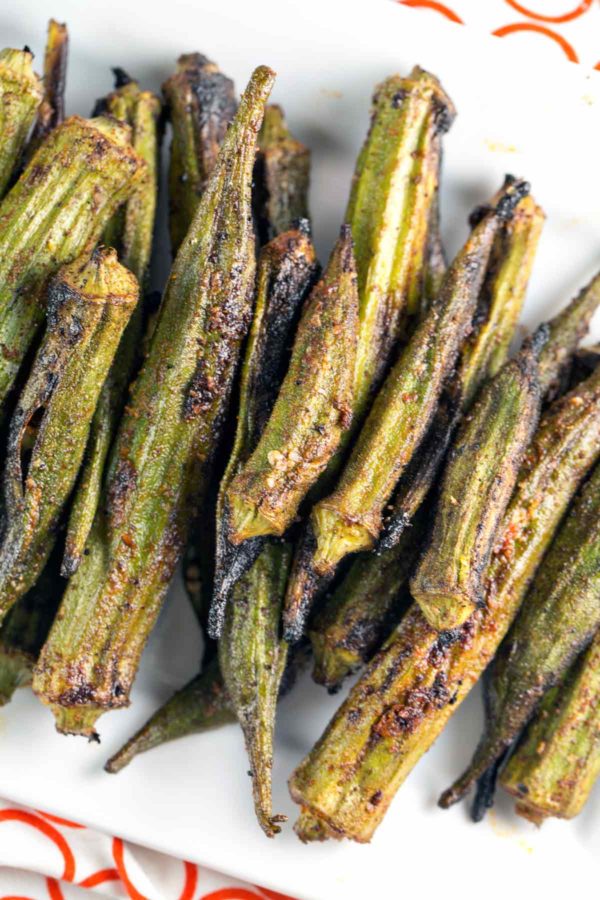Okra - Love it or Hate it
TEXARKANA, Ark. –
Mention okra and you will get mixed emotions. Some love it, others hate it. Perhaps the most well known characteristic of okra is its sticky center, which some consider a negative characteristic because when okra is cooked it can become slimy or gooey, while others love it because of the thickening agent it is in gumbo.
With a visit to the farmers market you'll see it's a good year for it and the growth has been prolific. It is a popular vegetable we are accustomed to seeing during these hot summer months. Okra is popular in the south and can be hard to find outside the region. It is easy to grow since it holds up well to pests, scarce water, and our high heat and humidity.
What should you look for when buying fresh okra?
Avoid choosing pods that are very hard because they will be bitter and difficult to eat. Pods that are too soft are overripe and will not taste as good either. They should be firm, bright green pods under 4 inches long. The pods must be harvested when they are very young. Larger pods may be tough and fibrous. Avoid those that are dull in color, limp or blemished.
After your purchase, refrigerate unwashed, dry okra pods in the vegetable crisper, loosely wrapped in perforated plastic bags. Wet pods will quickly mold and become slimy. Okra has a short shelf life, usually only two or three days. When the ridges and tips of the pod start to turn dark, use it or lose it. Once it starts to darken, okra will quickly deteriorate.
It may surprise you to know that okra is rich in nutrients. One cup of raw okra contains only 33 calories per cup. It is an excellent source of vitamins C and K, both providing 26 percent of the daily value. Vitamin C is a water-soluble nutrient that contributes to the overall immune function. It also plays an important role in maintaining and repairing tissues. Vitamin K is a fat-soluble vitamin known for its role in blood clotting which prevents excessive bleeding. Vitamin K has also been shown to play a positive role in bone health.
Vitamin A is available in moderate amounts in okra. This vitamin helps in the production of white blood cells, which in turn maintain proper immune functioning. Other functions of vitamin A include maintaining eye health and regular cell growth.
Okra is somewhat unique in that it contains some protein, 2 grams per one cup serving. While that doesn’t seem like much, it is unique that protein is found in a vegetable.
The most prevalent mineral in okra is magnesium. Magnesium is a nutrient that the body needs to stay healthy. Magnesium is important for many processes in the body, including regulating muscle and nerve function, blood sugar levels, and blood pressure and making protein, bone, and DNA.
If you are new to okra, it can be an intimidating vegetable. It has a reputation of being slightly gooey. Cooking with okra can be quite simple. Okra can also be baked, fried, steamed, pickled, grilled and even boiled.
This recipe for Spicy Grilled Okra is not slimy and is a tasty way to eat okra without heating up the house. Be sure to choose small pods so they aren’t tough.
Spicy Grilled Okra
- 1 pound fresh okra
- 1/4 cup melted butter
- 1/4 cup Cajun seasoning
Preheat an outdoor grill for high heat, and lightly oil the grate. Brush the okra with melted butter and then sprinkle with cajun seasoning. Thread onto skewers or put in grilling basket or on grilling tray. Grill the okra until charred, about 2 minutes per side.
For more information or to receive your free copy of Arkansas' Fresh Okra, contact the Miller County Extension Office, 870-779-3609 or visit us in room 215 at the Miller County Courthouse. We're online at cdue@uada.edu, on Facebook at UAEXMillerCountyFCS, on Twitter @MillerCountyFCS or on the web at uaex.uada.edu/Miller.
By Carla Due
County Extension Agent - FCS
The Cooperative Extension Service
U of A System Division of Agriculture
Media Contact: Carla Due
County Extension Agent - FCS
U of A Division of Agriculture
Cooperative Extension Service
400 Laurel Street, Suite 215 Texarkana AR 71854
(870) 779-3609
cdue@uada.edu
The Arkansas Cooperative Extension Service is an equal opportunity institution. If
you require a reasonable accommodation to participate or need materials in another
format, please contact your County Extension office (or other appropriate office)
as soon as possible. Dial 711 for Arkansas Relay.
Pursuant to 7 CFR § 15.3, the University of Arkansas System Division of Agriculture
offers all its Extension and Research programs and services (including employment)
without regard to race, color, sex, national origin, religion, age, disability, marital
or veteran status, genetic information, sexual preference, pregnancy or any other
legally protected status, and is an equal opportunity institution.
